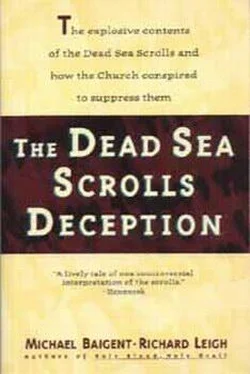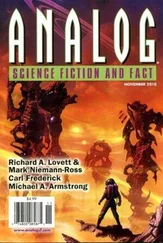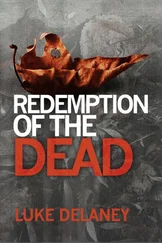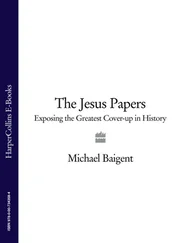In 1956, Allegro published a popular book, The Dead Sea Scrolls, following this in 1968 with his own research on the texts and fragl ments from Cave 4 in the fifth volume of the definitive Oxford University Press series, Discoveries in the Judaean Desert. At this point, Allegro was one of the most esteemed and prestigious figures in the field of biblical scholarship. Yet within two years, he was to abandon his colleagues on the international team, turn his back upon the academic world and resign his university post at Manchester. He was also to be vilified and discredited. What had happened?
It quickly became clear, to the academic community in general as well as to the international team, that Allegro was the only one among them who was not only an agnostic, but also uninhibited about ‘rocking the boat’. Unconstrained by any personal religious bias, he explained things, often impetuously, as he saw them; and he rapidly lost patience with his colleagues’ refusal to countenance any theories, or even evidence, that might contradict the accepted ‘party line’ on Christian origins. In particular, he grew exasperated with the strained attempts to distance Christianity from the scrolls and the Qumran community. He insisted on the obvious connection between the two, and suggested that connection might be closer than anyone had hitherto believed — or, at any rate, dared to suppose.
The first major storm occurred in 1956, when Allegro agreed to give a series of three short talks on the Dead Sea Scrolls, to be transmitted on radio in the north of England on 16, 23 and 30 January. It was clear that he intended to accelerate the tempo of scroll research by injecting an element of excitement and controversy. ‘I think we can look for fireworks’, he wrote imprudently to John Strugnell, who was then in Jerusalem. 9That statement, as Allegro failed to appreciate, was bound to set alarm bells ringing in the Catholic-dominated ‘Scrollery’. Oblivious of this, he went on to say that ‘recent study of my fragments has convinced me that Dupont-Sommer is more right than he knew’. 10At the time, apparently, Strugnell was considering a career in the Church. Allegro quipped, ‘I shouldn’t worry about that theological job, if I were you: by the time I’ve finished there won’t be any Church left for you to join.’ 11
Allegro’s first and second broadcasts attracted little attention in Britain, but the second was written up by the New York Times, which misunderstood and misquoted him, yet generated a flurry of debate. The third talk, broadcast on 30 January, was followed on 5 February by an article in the New York Times which could not but cause a sensation. ‘Christian bases seen in scrolls’, the headline proclaimed:
The origins of some Christian ritual and doctrines can be seen in the documents of an extremist Jewish sect that existed for more than 100 years before the birth of Jesus Christ. This is the interpretation placed on the ‘fabulous’ collection of Dead Sea Scrolls by one of an international team of seven scholars… John Allegro… said last night in a broadcast that the historical basis of the Lord’s Supper and part at least of the Lord’s prayer and the New Testament teaching of Jesus were attributable to the Qumranians. 12
The same article hinted at trouble to come, quoting a Catholic scholar as saying that ‘any stick now seems big enough to use against Christianity’ provided it could be used ‘to dislodge belief in the uniqueness of Jesus’. 13Allegro, in fact, was beginning to trespass on very sensitive territory indeed. On 6 February, Time Magazine ran an article entitled ‘Crucifixion Before Christ’. Two days later, The Times reported that three American religious leaders, one Jewish, one Catholic and one Protestant, had joined forces to refute Allegro and warn against any attempt to depict ‘the Essenes’ as precursors of Christianity. 14All this controversy was, of course, finding its way back to de Vaux, together with requests that something be done. Allegro, however, appears to have been almost naively insouciant. On 9 February, he wrote to de Vaux claiming he was ‘being accused of saying the most astonishing things, some of which are true, and are indeed astounding, others come from the bosoms of eager reporters’. 15
It is clear in retrospect that Allegro never fully realised how sacrosanct the idea of Jesus’ ‘uniqueness’ was, and that, as a result, he underestimated the lengths to which de Vaux and other members of the international team would go in order to distance themselves from his blunt approach. This was his only real mistake, so far — that of expecting his colleagues to accept his assertions without letting their own religious allegiances influence their judgment. In his own view, he was addressing his material as a disinterested scholar, and hoped they might eventually do likewise. His innocent gibe that, by the time he’d finished, there’d be no Church left for Strugnell to join, testifies to his conviction of how important and conclusive he felt his material to be — and to his excitement at the discovery.
On 11 February, de Vaux wrote back to Allegro, distinctly unamused. All the texts available to Allegro, de Vaux said, were also available to the other members of the team in Jerusalem. They had failed to find anything that supported Allegro’s interpretation.
In his reply, on 20 February, Allegro attempted to stand his ground and at the same time repair the rift with his colleagues and defuse the public controversy: ‘You will excuse me if I think that everyone in the world is going stark, raving mad. I am enclosing my broadcast talks, as you request, and if, after reading them, you are left wondering what all the fuss is about, you will be in precisely my position.’ 16Noting that Strugnell and Milik were alleged to be preparing rebuttals of his statements, he commented, ‘I am not waging any war against the Church, and if I were, you may rest assured I would not let any loopholes in… I stand by everything I said in my three talks but I am quite prepared to believe that there may be other interpretations of my readings.’ 17
On 4 March, de Vaux replied, warning Allegro that a rebuttal was indeed being prepared. It would not be just from Strugnell and Milik, however. Neither would it be confined to a scholarly journal. On the contrary, it would take the form of a letter to The Times in London and would be signed by all the members of the international team.
Instead of being intimidated, Allegro was defiant. Not mincing words, he responded that a letter to The Times ‘ should be most interesting to the London public, who have never heard my broadcasts’:
I have already pointed out to you that these broadcasts were made on the local Northern station… You and your friends are now apparently going to draw the attention of the gutter press of this country to these passages, of which neither they nor the majority of their readers have heard, and start a witch hunt… I congratulate you. What will certainly happen is that the press, scenting trouble, will descend like hawks on me and want to know what it is all about… they will have added fuel in what appears on the face of it to be a controversy developing between the ecclesiastics of the Scroll team and the one unattached member. 18
He went on to invoke Edmund Wilson, indicating just how worried de Vaux’s team should be by the suspicions Wilson had voiced. In effect, he was attempting to use Wilson as a deterrent:
Having regard to what Wilson has already said about the unwillingness of the Church to tackle these texts objectively, you can imagine what will be made out of this rumpus.
With all respect I must point out to you that this nonsense of Wilson’s has been taken seriously here. At every lecture on the Scrolls I give, the same old question pops up: is it true that the Church is scared… and can we be sure that everything will be published. That may sound silly to you and me, but it is a serious doubt in the minds of ordinary folk… I need hardly add what effect the signatures of three Roman priests on the bottom of this proposed letter will have. 19
Читать дальше












